Other Articles




“I love audio work for all sorts of reasons, although it’s actually taken me years to fully grasp that ultimately it’s the quality of the voice itself that sprinkles the magic.“
What do you think is the most complex part of being a professional voiceover artist & broadcaster?
I like to think that my role, and I hope talent, is being able to channel what is a very complex creative process into the sharp end – the ‘performance – and deliver the detail, tone and mood of the ‘message’ in my vocal presence, be that documentary narration, commercial voiceover or my work as an on air journalist. I see my voice as an instrument and take pride in the fact that I can deliver professionally, with the correct feelings and emotion and always have fun whilst so doing!
The challenge of ‘performing’ exactly as the client requires or as I hope to always do, even better than they imagined, gives me immense satisfaction. I love the whole technical process having worked on both sides of the mic and I continue to do so. Bringing that broad experience into my presentation as and when required enables me to ‘edit’ in my head and I love the ‘technicalities’ of presenting, both the ‘science and the ‘art’ of presenting. And it’s the sheer ‘diversity’ of presenting, as I jump from delivering hard politics to becoming an expert on the motoring industry to talking about the latest makeup brand, that continues to thrill me.
Hear more of Nadira’s voiceover work

You’re also a professional journalist, as a journalist what is the most interesting and challenging aspect of the job?
It continues to be challenging each and every day. Just when I think I’ve got the world taped, a global pandemic comes along and I start again. Working on an international channel for the last 5 years, in a country that is deemed controversial made has me understand even more the wide gaps in cultural and political perspectives, decision-making, differing human rights beliefs, social ideologies, etc that exist in our world.
As a naturally pacific, egalitarian, feminist, anti-racist, LGBT-embracing activist, delivering suchlike news, editorialising perspectives that might oppose one’s own views is of course the job of a journalist, but being involved in important debates and stories that reflect atrocities and knowing that legislation in many individual countries and international law will not protect the innocent necessarily, has distressed me at times.
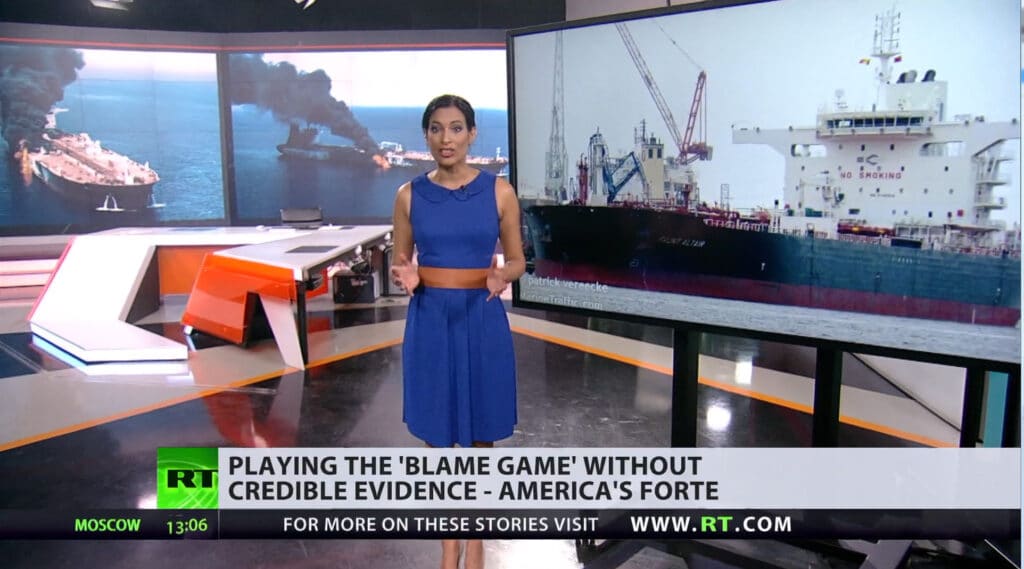
Knowing that the disparity between economic importance and human life is so great – and has been throughout history – is an area that has taught me so much but highlighted so much too. The most interesting side has been acquiring knowledge in these areas, being able to ‘educate’ your audiences as to different sides of an argument and highlighting both ‘good’ and ‘bad news to the world. Again, a very unusual position to find oneself in.
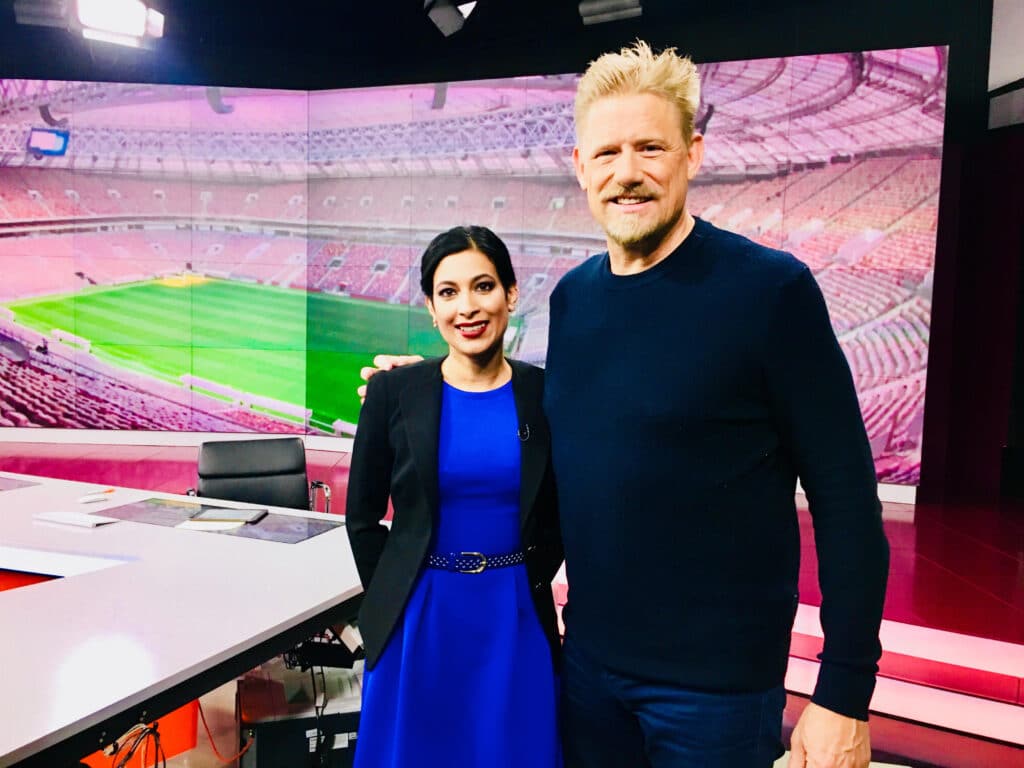
I have also had many years of working at the BBC and a number of smaller international outlets – all with differing remits, so my job as a journalist enables me ‘think’ and deliver in ways that one might not be normally asked to do. I now find myself with Times Radio covering domestic UK news in the main part. This is equally challenging, but the interest remains the same, to be the person who is able to breakdown complex information into appropriate ways for wide but diverse constituencies. Making it palatable and entertaining and delivering as well as I can, is something that I will never get bored of!
Have you met/interviewed anyone really famous, or anyone who has really impressed?
‘Famous’ and ‘important’ people beyond counting – Recently Brian Eno, Vivienne Westwood and Chrissie Hynde formed an unlikely but memorable trio of interviewees as I reported on the ‘Free Julian Assange’ rallies in parliament Square.
But in truth, it’s been the ‘Unknown’ who’ve left the really lasting impressions.
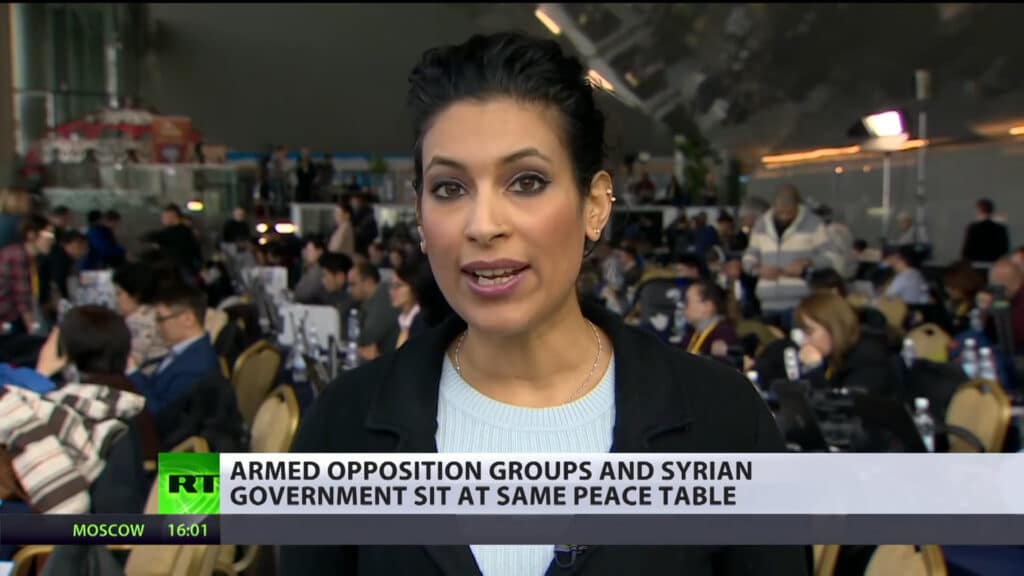
In 2017 when I was anchoring the main news programme for RT International in Moscow I met a woman who had founded and ran a refuge in Syria for women and children escaping imprisonment at the hands of various government and terror groups throughout the region, at great risk to herself. People’s bravery and self-sacrifice never ceases to leave me humbled and in sheer awe.
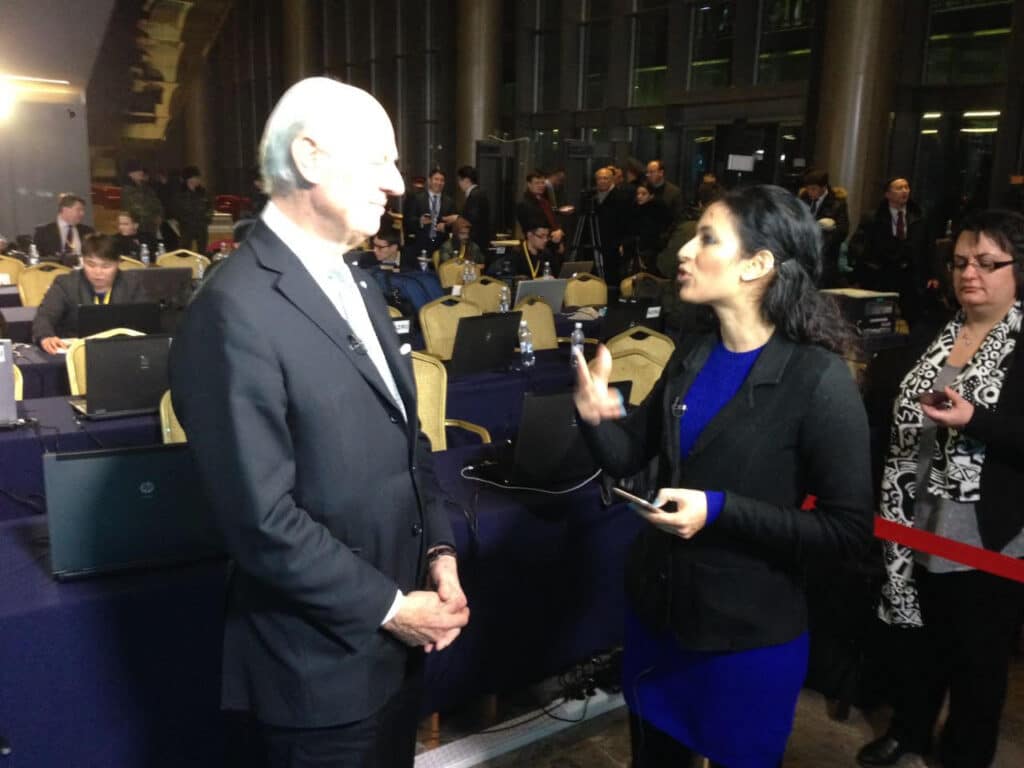
Most recently, I again covered the Syrian peace talks in Astana and I managed to get an exclusive interview with Staffan di Mistura – the UN envoy for Syria at the time and basically Mr Syria for many years – he was very very lovely !!
But famous? Peter Schmeichel, John Surtees, Les Dennis, Ioan Gruffudd, The Manic Street Preachers, Sir Terry Hands, His Royal Highness from Cambodia, Shobna Gulati, Jeff Banks, Tom Jones, Shirley Bassey, Sophie Dahl and Martin Bell.
Recently I had the pleasure of briefly working with Michael Portillo on his programme in the early weeks of Times Radio and he was both impressive and rather lovely.
There’s been numerous CEOs from Business and of course lots of middle-aged white men in suits, otherwise known as politicians.
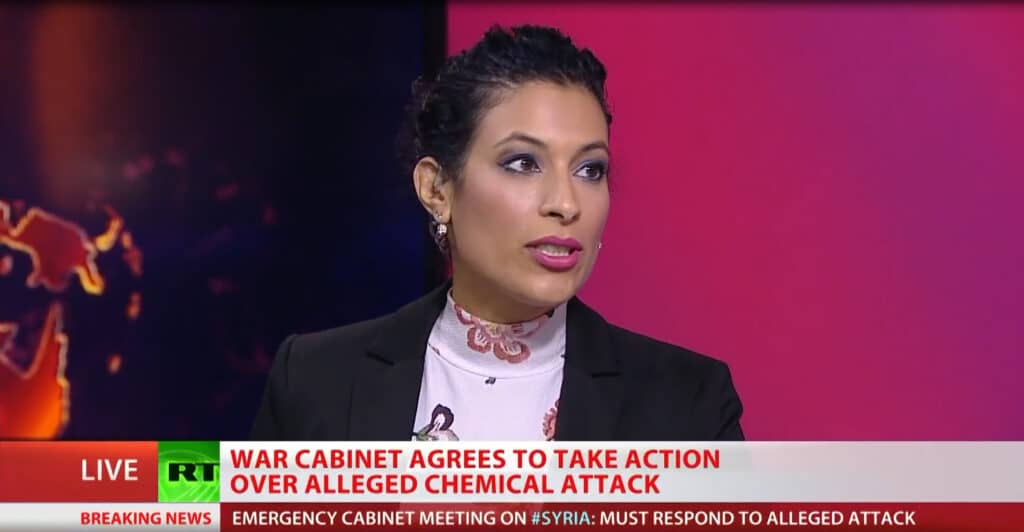
What gives you a buzz?
Well as I said, there’s nothing as ‘buzzy as the red light for live broadcasting going but it’s both a privilege and a buzz to be at the heart of big events whether they’re Victory Day in Moscow or massive music events.
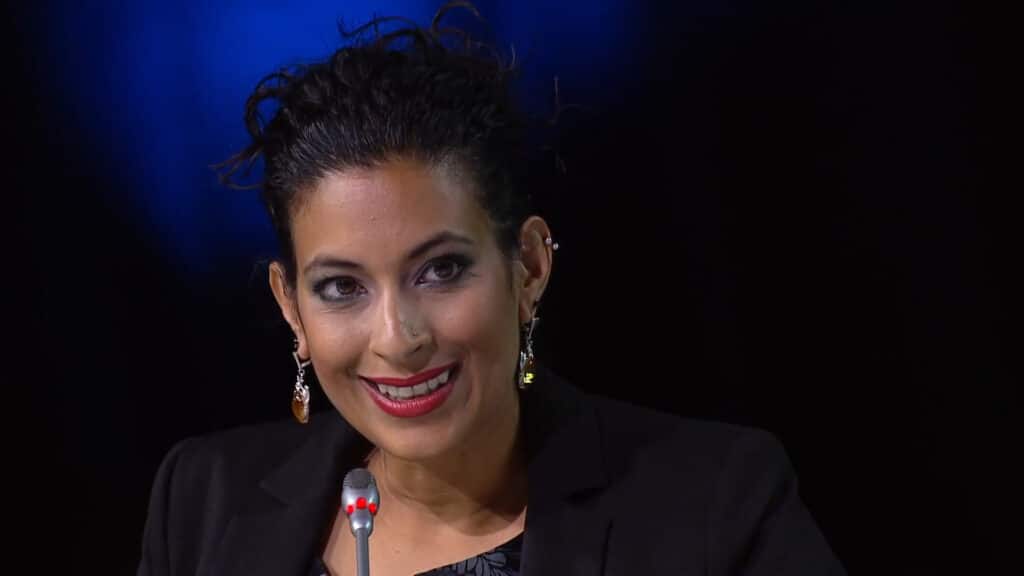
Tell us about the most recent and exciting project you’re on with? It must be a real thrill being involved with Times Radio right at the start?
I’m juggling many areas of work at the moment, but it has been brilliant to be a part of the launch news team for Times Radio, particularly during a global pandemic and amidst such uncertainty.
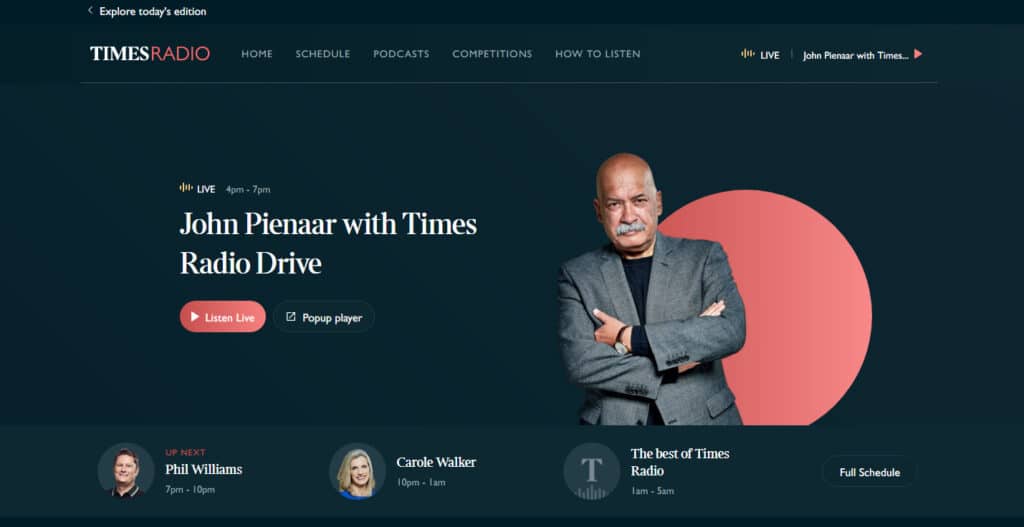
To come from international news back to domestic news has been a challenge for sure, but one which I am enjoying immensely!
I’ve also just completed narrating an 8-part documentary for Channel 5/Channel 10 (Australia) and I’m currently moderating sessions with world leaders and policymakers for the Global Manufacturing & Industrialisation Summit, driving discussions on how the 4th Industrial Revolution can help policymakers and world leaders affect global change to bridge the gap between rich and poor nations.
It’s all being done on digital-only platforms at the moment but last year I was the main host at the summit. All very varied but equally valid and interesting for different reasons.

So which corporate task is best and why – live events or pre-recorded video work?
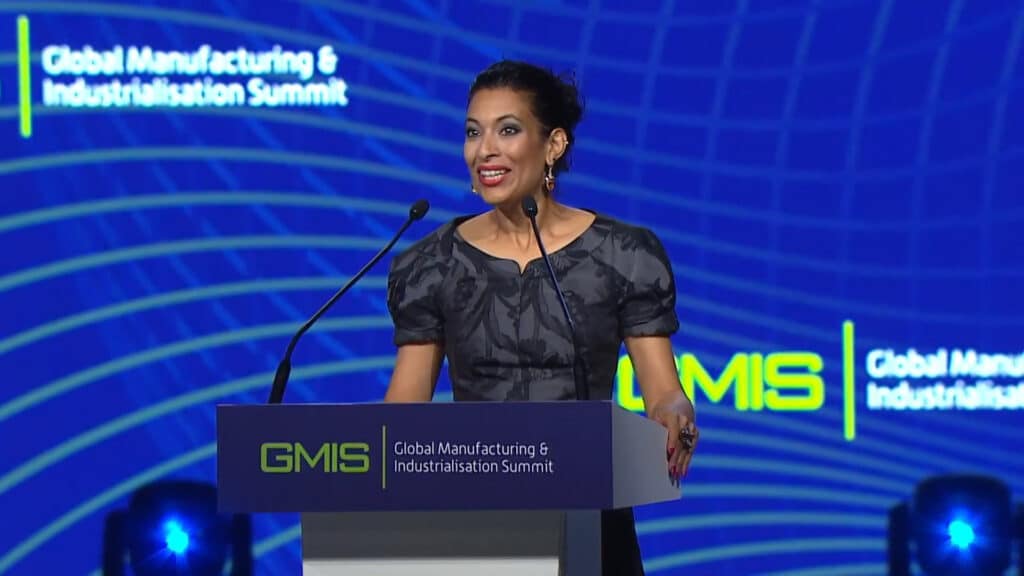
Again, the variety is important for me. Live events have a ‘rough’ and ‘readiness’ that I embrace. The chance to use those ‘thinking-on-your-feet’ skills is not only daunting, but exciting at the same time – perfect for the adrenaline junkie. There’s nothing like having an live audience to sharpen and focus you!
But I loved the Mental Awareness campaign I did for iHasco and which won us an award!
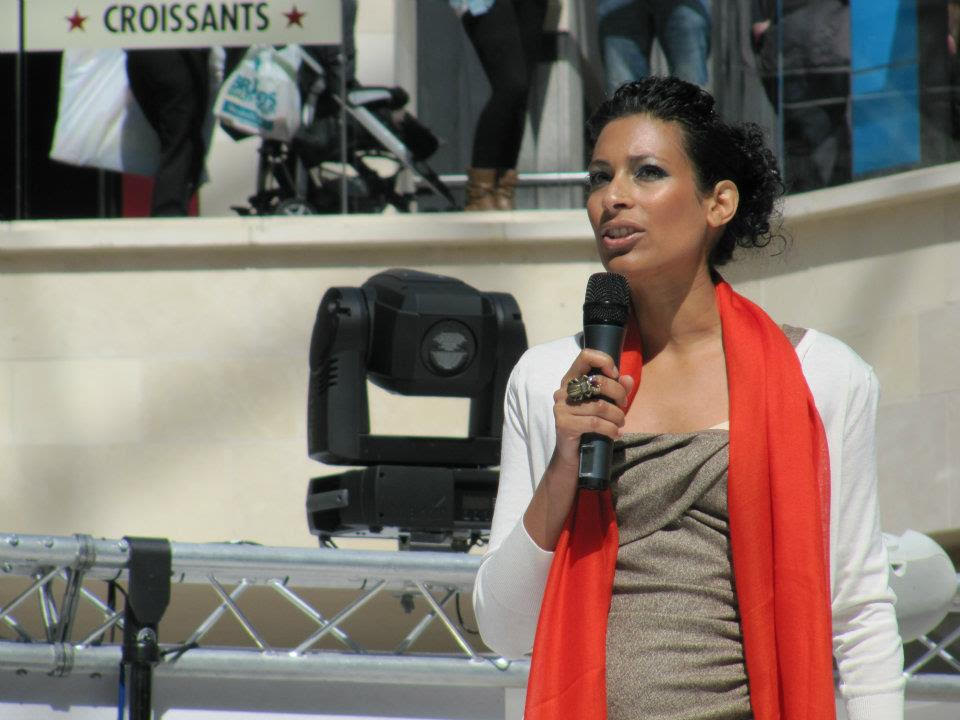
We know you do a lot to ‘give back’ – can you tell us a bit about the work you do in education, is it structured or ad hoc guesting?
Alongside my broadcast career, I have had a parallel career as an educator and trainer in formal education, crisis communication and for many corporates, where I have developed, written and delivered many tailored courses across a variety of sectors, including the military, media, education,
charities and the public sector.
I feel very passionately about ‘giving back’ some of the skills and experience where there’s demand, whether that’s through consultancy, formal education, ad hoc training etc etc.
I understand how fortunate I have been with my career so far and how competitive the industry is, but it’s also important to remember that even for those that will never work in broadcasting, the communication skills that I offer are transferable skills that can be used in every area of work and in life.
.



